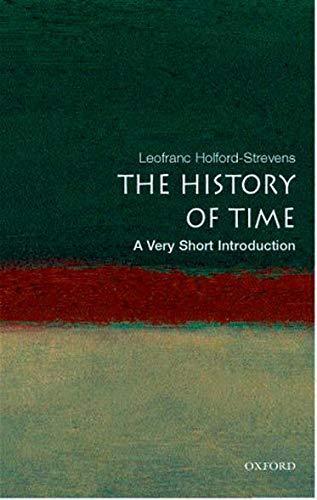Review of 'The history of time : a very short introduction' on 'Goodreads'
2 stars
I started reading this book thinking this was a historical exploration of the philosophical conceptions of time. Maybe I’m not the only one to fall for this, for, as the author himself acknowledges in the introduction, the title may be a bit of a misnomer. Even so, I was pleasantly surprised by the the content of this work. For this is a history of the ways people kept track of time. In this sense, yes, this is a history of time, but time in a weaker sense.
So what is this book actually about? This is an exploration of how the different calendars were divised, its lengths, its relations and justifications within a particular culture, and how some of these notions, ideas, calculations and, even, mistakes, are still influencing our own ways of keeping track of time.
So, what do I keep from this? Well, to be honest, just …
I started reading this book thinking this was a historical exploration of the philosophical conceptions of time. Maybe I’m not the only one to fall for this, for, as the author himself acknowledges in the introduction, the title may be a bit of a misnomer. Even so, I was pleasantly surprised by the the content of this work. For this is a history of the ways people kept track of time. In this sense, yes, this is a history of time, but time in a weaker sense.
So what is this book actually about? This is an exploration of how the different calendars were divised, its lengths, its relations and justifications within a particular culture, and how some of these notions, ideas, calculations and, even, mistakes, are still influencing our own ways of keeping track of time.
So, what do I keep from this? Well, to be honest, just the loose impression that most peoples (if not all) in their need to keep track of time, end up being trapped within the cultural necessity of trying to make the universe conform to the calendar. I know, sounds weird. But we are still doing it. For we rise when the clock ticks, and not when the Sun rises. This, although not explicitly stated in the book, it’s something that permeates the whole message; at least when you start considering that all calendars are filled with incongruencies shaped by cultures offsetting the counting with the universal measure of Nature.
Maybe you’ll like to know why your days are called the way they are. Maybe you just like to know some random facts about calendars, Easter days, and why do we call it Summer. Maybe you’re just glad do know how cutely random these defining features of our civilization truly are. In any case, you’ll find something of interest worth of your time.

